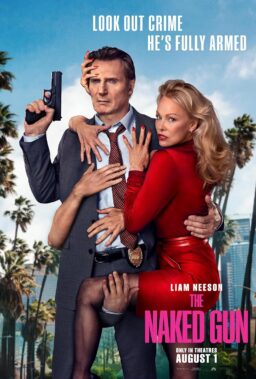Robert Bresson, the lonely giant of the French cinema, is dead.
The director, whose austere masterpieces evoked praise but little imitation, died Saturday in Paris at 98, after a long illness that inspired retrospectives and tributes at the Film Center of the Art Institute of Chicago and in Toronto, London, Edinburgh and Tokyo. In Chicago, all of the screenings sold out, even though Bresson’s films often were ignored by audiences on first release.
Bresson was one of a handful of directors whose very frames identified their author. Like Fellini, Hitchcock and Ozu, he had such a distinctive way of seeing that his films resembled no others. What you noticed was the extreme restraint of his actors (he preferred to call them “models”), and the way the action centered on what his characters saw, rather than what they did. “The thing that matters,” he said, “is not what they show me but what they hide from me and, above all, what they do not suspect is in them.”
His actors had no difficulty conveying that state, because Bresson never discussed characters, plot or motivation with them, only instructing them minutely on how to move and what to say. He shunned displays of emotions in his work, rehearsing and shooting a scene over and over, until the actors seemed to be going through the motions without thought. Oddly, this style created films of great passion: Because the actors didn’t act out the emotions, the audience could internalize them.
Bresson’s best known film was probably “The Trial of Joan of Arc” (1963), in which Joan was seen entirely as a spiritual creature; not for him the gaudy excess of the battle scenes in the recent French extravaganza “The Messenger: The Story Of Joan Of Arc.” He advised against music in movies, avoided all special effects, and when he did show a medieval battle scene, as in “Lancelot of the Lake” (1974), it was typical that he shot his characters from the neck down, dressed in armor, focusing on physical agony rather than their personalities.
In “Pickpocket” (1959), he studied on the exact physical methods of his hero, leaving us to guess at his motivations, which were not theft so much as a cry of loneliness from a man cut off from the world. In “A Man Escaped” (1956), he shows a jailbreak based not on cunning or trickery but on infinite patience and the minute observation of the habits of others. In “Mouchette” (1966), one of his most touching films, a young girl is cruelly treated by her village, and kills herself; the death is a moment of freedom and ecstasy. “Au Hasard Balthazar” (1966) was about the suffering of a mule. “Diary of a Country Priest” (1950) was about a young priest whose true spirituality baffles those who seek the comfort of superficial religion. It was cited as an influence by the Russian Andrei Tarkovsky, another director whose films resembled prayer. His final film, “L’Argent” (1983), tells the story of a young man who unwittingly passes a counterfeit note, setting into motion a strange chain of moral circumstances.
Newcomers to his work were often baffled. Those who looked more closely became fascinated. I taught a class on his work a few years ago, and watched the students begin with doubt and end in admiration. Through his discipline there beat a passion that made flashier, showier directors seem shabby.
“To see his films is to marvel that other directors have had the ingenuity to evolve such elaborate styles and yet restrict them to superficial messages,” write the critic David Thomson. Quite so; the second entry in Bresson’s Notes on the Cinematographer reads: “The facility of using my resources well diminishes when their number grows.”
What did he think of movies that assault us with blasts of sound and special effects? His notes are like psalms, with such entries as: “If the eye is entirely won, give nothing or almost nothing to the ear. One cannot be at the same time all eye and all ear.”
Producers were not daring enough, and audiences not curious enough, to easily support the kind of art to which he devoted his career. His movies were few and far between – 13 in 40 years. For lovers of film, they are like the stations of the cross.











